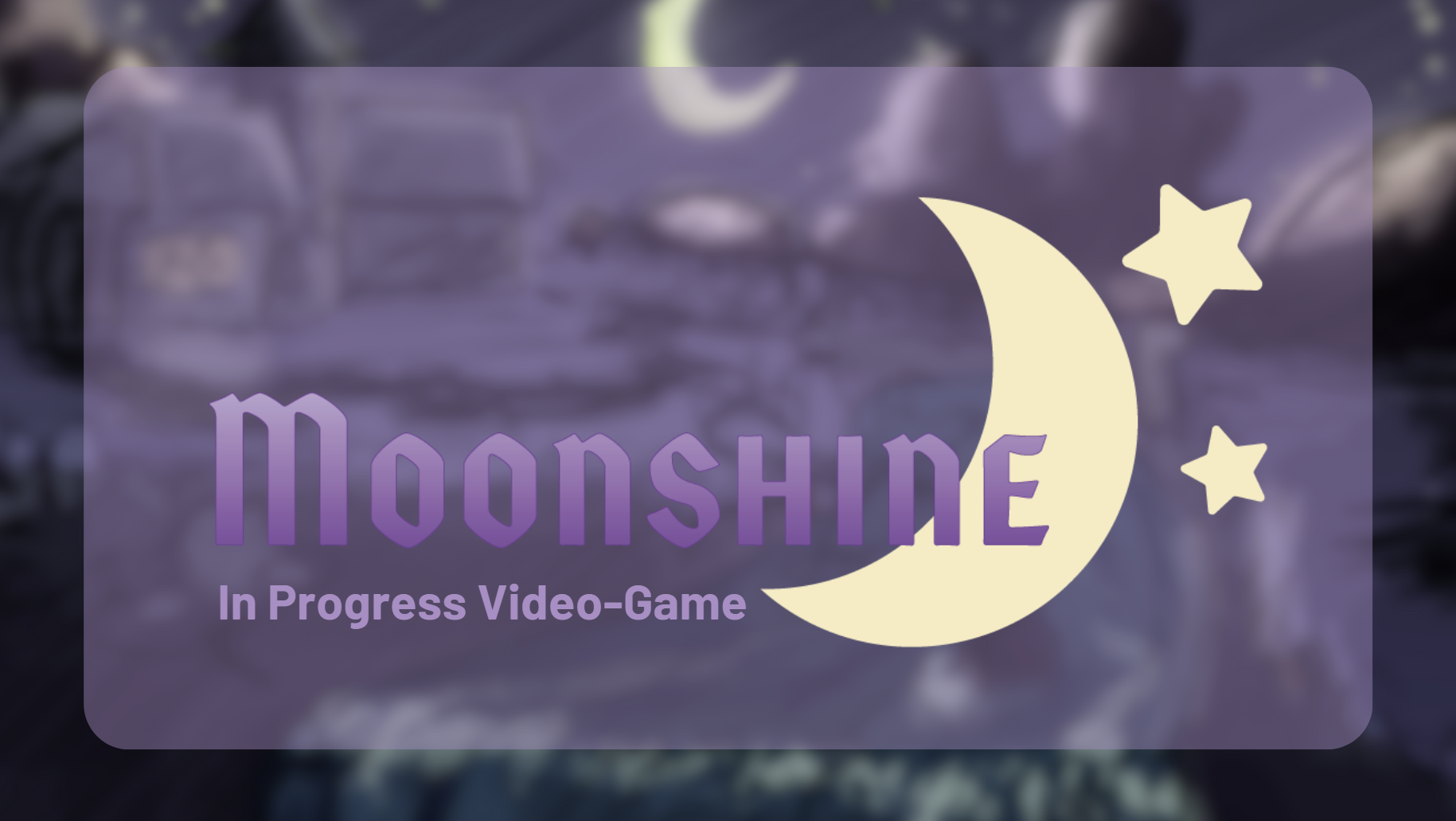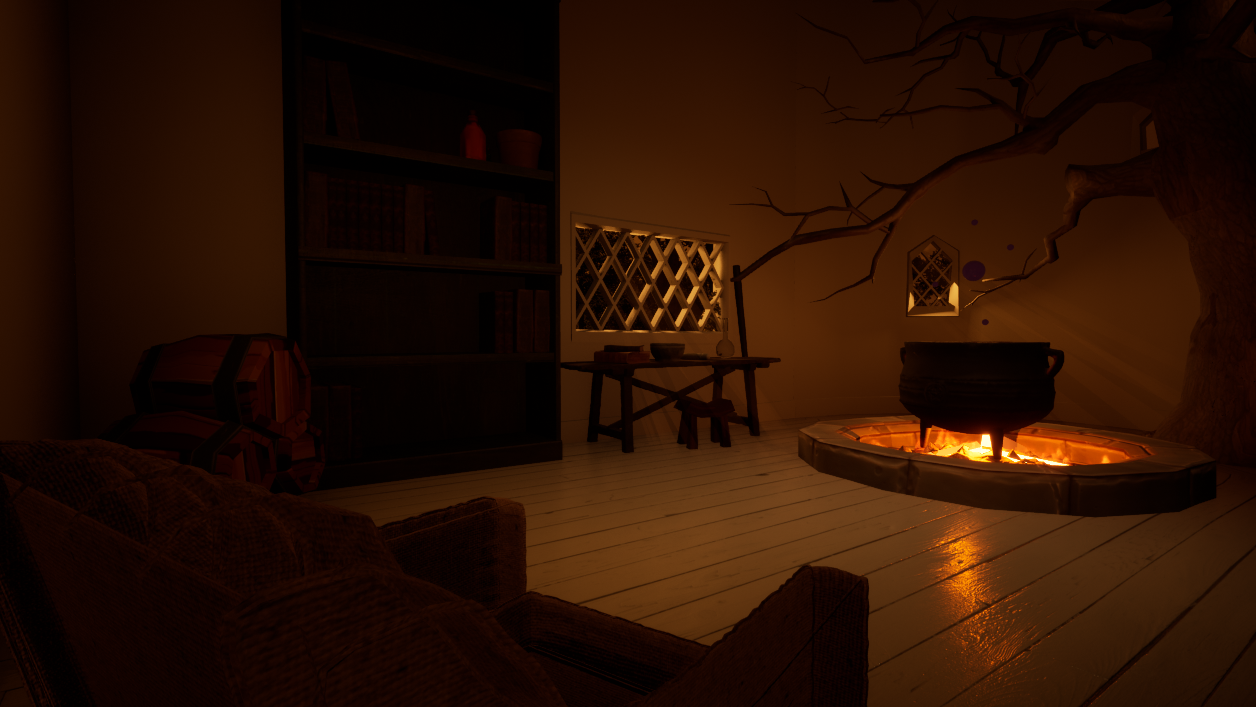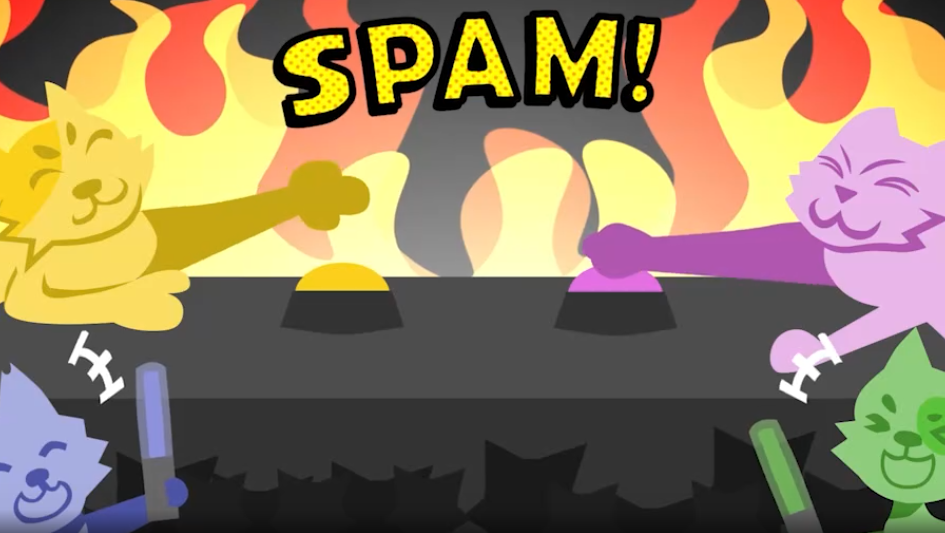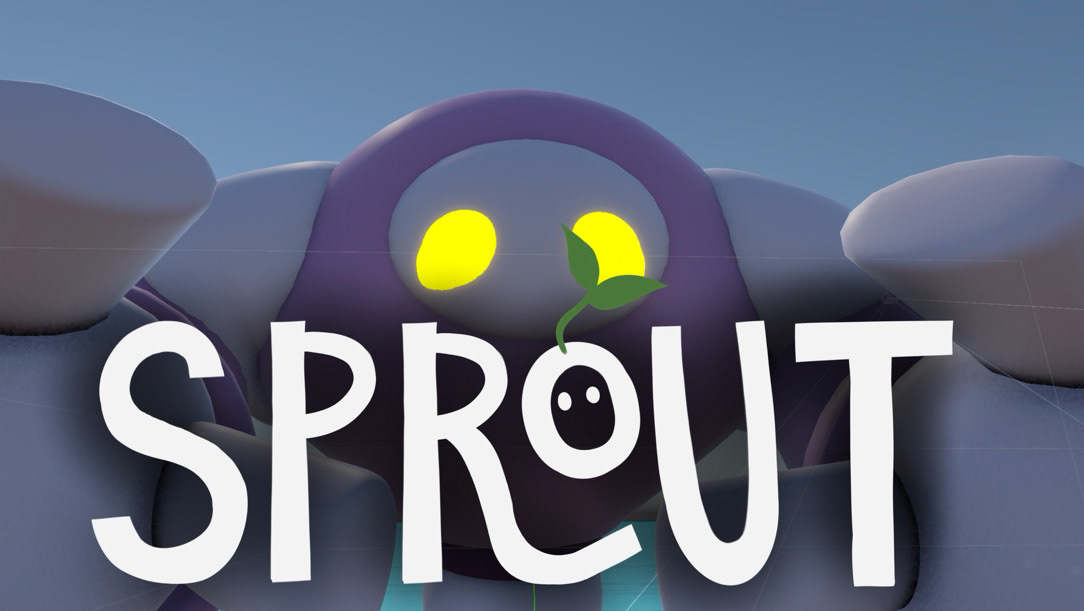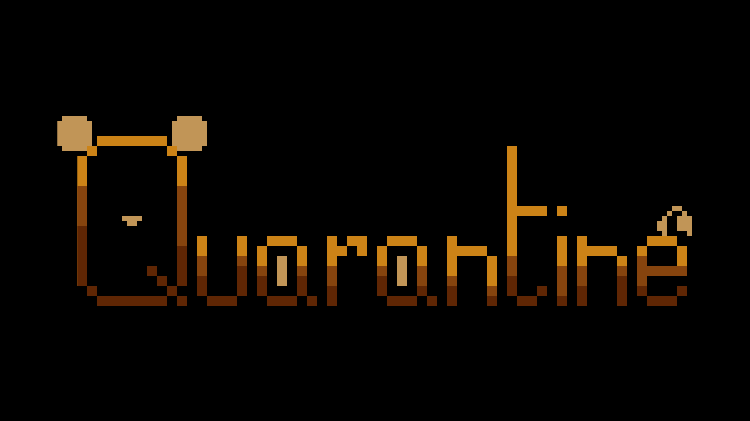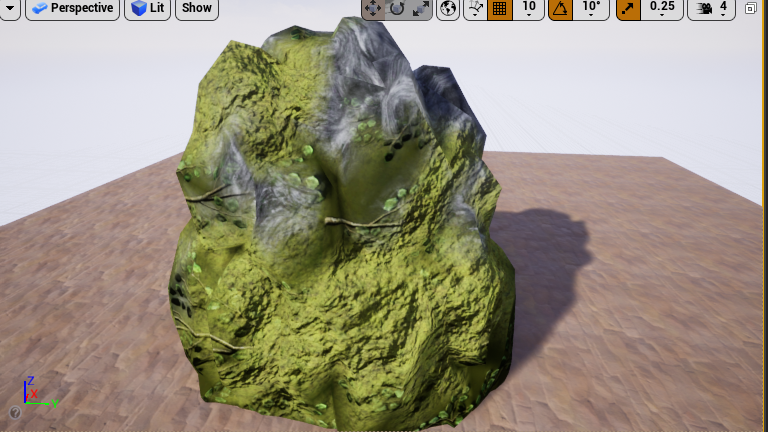Pitch
Genre: Simulation
Audience: teen-young adults, casual gamers
High Concept: Stardew Valley, VA-11 Hall-A, and Kiki’s Delivery Service meet in this casual magical simulation game. Brew potions, cast spells, and nurture relationships to make your place in this world.
Story Summary: The Hazel family is one that has practiced white magic for centuries. When a conduit (a person with magic capabilities) comes of age, they must choose to travel the path of one of their elders and train in their town of practice.
As the player has reached such an age, they will follow in the footsteps of their grandmother and apprentice with her ghost in the town of Cloudventperth Creek, where they will come to realize not everyone is so accepting of their family’s gift.
Players can choose to either go about business as usual and run Moonshine (the potion and charm shop) the same way their grandma did, forgo tradition and try to be accepted by those who despise their family, or find a healthy balance and create a life for themselves in their new home.
Gameplay Summary:
- Brewing Potions and Creating Charms: Taking inspiration from the mixing mechanic of VA-11 Hall-A and the brewing mechanic of Fantasy Life, players will be able to concoct potions of varying effects and affects to better their relationship with their customers
- Interacting with NPCs, love interests, and the environment: Completing quests for the townspeople, gifting favourite items, and helping take care of the land to increase or decrease the player's relationship
- Learn Spells: By studying Grandmother’s Grimoire (and the forbidden book of spells), the player can learn either White Magic or Black Magic – though the line between the two isn’t as large as it seems
- Farming: Nurture rare plants in the greenhouse to harvest for high-quality potions or gifts
- Nursing: Using the learned skills, the player may be able to help magical creatures and humans should they find them injured
Gameplay Innovations / Key Selling Points:
Players can pick their pronouns/gender, and any love interests can be perused regardless of what they choose
Gathering materials in the surrounding areas, brewing potions, and creating customizable charms to sell to customers
A deep story about acceptance, longing, and family history
Fluff Text:
*It’s grandma’s favourite cauldron. The sticker you placed on it as a kid is still there.* When the player is gifted the cauldron during the brewing tutorial.
“You keep your witchy nonsense away from me and mine, and we won’t have any problems” Ben (a villager NPC) to the player when they introduce themselves.
*The villagers look interested, but seem too scared to approach you.* When the player first enters the town to put up a flyer for Moonshine’s re-opening.
*The first page in the book is a defensive spell… why would this be considered Dark Magic?* The player’s familiar upon reading the first page of the forbidden book against their wishes
Story Integration:
Open world: although this mechanic may seem counter-productive, the open world outside of the shop will be one that allows for gathering materials for quests, meeting with love interest, and gaining reputation – ultimately affecting the way in witch you can play
Tangential Emerging Narratives: optional side quests and stories found through player agency will present tutorials, more exploration of the story and characters, and the chance to earn more items to make gameplay more efficient
Narrative Design
Angelina Almanza
RTA 923
Bryadon Beaulieu
February 15, 2021
When designing a memorable game, one of the most important things to account for is player agency – the ability to allow for player exploration, actions, and decisions (Eng). At first glance this can seem simple – just provide options for players to say yes or no, or allow for them to edit their avatar, and boom, user interaction. Therefore any game that does this must be good, right?
Sadly it isn’t quite that easy, and finding a way to present effective opportunities of agency proves to be more thought-provoking. As Eng mentions, “Making sure that players are reinforced for their specific choice is important for providing a venue of relevant agency. Making a choice that has no bearing or impact on the player experience, in the end, feels…. hollow (Eng).” If a game asks for interactions or feedback, players want to be rewarded for their actions in some way or their actions seem pointless. Hence why for narrative-based games, selecting the correct narrative mechanic and tools to allow for agency is imperative.
Take the game Va11 Hall-A by Sukeban Games as an example. In this cyberpunk action world users play as Jill, a bartender of one of the last happy places on Earth – Va11 Hall-A (lovingly dubbed Valhalla by the patrons (Sukeban Games)). Players will experience hilariously unique feedback through every drink they concoct, earn different scenes based on the alcohols’ strength and preference accuracy, and gain new recurring customers from their actions. What Va11 Hall-A does is allow for players' deeds to have consequences through both Elastic Branching[1] and Late Branching; thereby creating a memorable experience through feedback in both the short and long term[2].
For the purpose of exploring a specific Narrative mechanic in this assignment, however, the focus should be brought to Elastic branches; as they fall under the Explicit Story Choice Mechanic (ESCM). This Mechanic presents players with multiple choices, and provides results immediately that are dependent on what they chose. Which thereby allows for cutscenes, minigames, and information that can only be given based on player action; and creates a more personal experience through a player’s agency.
Within my game Moonshine, the explicit story choice mechanic is one that will be essential in both rewarding player agency and keeping them immersed in the Game. As the game will have an open world setting similar to Stardew Valley (Concerned Ape), exploration of the world will be key to finding both Elastic and Tangential Branches[3] that provide the immediate feedback of ESCM. The promise of cutscenes with NPC’s that allow for upgrades, relationship stat changes, and quests will tempt the player into finding the branches for the rewards; and the different dialogue that will be presented based on players' responses will provide feedback to delight. You’re asked to make a poison by one of the villagers? Accept without question and favourability goes up! One of the NPC’s says something strange and you reply with a “huh”? Learn the secrets of the universe from their explanation! Help an elder with back pain? Learn the location of a forbidden grimoire through their story whilst you nurture them!
Works Cited
Eng, Dave. “What is Player Agency.” University XP, 20 August, 2020, https://www.universityxp.com/bl
og/2020/8/20/what-is-player-agency. Accessed February 2022.
Grambart, Stefan. “Interactive and Narrative Gameplay.” RTA 929 Multiplatform Narratives. Ryerson University, 23
February 2021.
Stardew Valley. Concerned Ape, Nintendo Switch Version, Nintendo Switch, 5 October 2017.
Sukeban Games. “Va11 Hall-A.” Sukeban Games, N/A, https://sukebangames.itch.io/valhalla-bar. Accessed February
2022.
Va11 Hall-A. Sukeban Games, Nintendo Switch Version, Nintendo Switch, 2 May 2019.
Short, Scripted Scene
This scene would be triggered later in the game, after finding Amy (a child villager NPC) and triggering a heated scene between Ben (Amy's grandfather) and the player's avatar.
For a bit more context - prior to the start of training (the game) the avatar lived with the main family branch of the Hazel family. The environment was toxic, and so the avatar's love of magic that was spurred by their grandmother dwindled.
When they came of age, the avatar went against the family's wishes and chose to once again train with their grandmother to see if they could rekindle the love of their main craft - making moonshine (homebrew potions). However, the doubt still lingers, and this scene may be their tipping point.
Note: I’m thinking that the forbidden grimoire will have consequences, and the more the player uses it the less control they have over their avatar. Ergo, the avatar will now be able to express their own lines of dialogue-free from their influences. And the player won’t truly know until it’s too late.
Scene [?]
Scene triggers in the brewing room after healing Amy and confronting Ben, and everyone leaves.
Familiar: How could he say that!? He should be happy that you found Amy – not condemning you for her being lost in the first place!
Grandma: Bagh that’s just the way Ben is. Spewing nonsense, kicking hornets’ nest – everyone else was on your side love, just ignore him and he’ll fizzle out.
Interactive:
Choice A: I know that - but it still hurts. Maybe if I had done something better – if I had acted like they trained me to… [+ control]
Choice B: …Maybe he’s right. [- control]
IF CHOICE A START:
Familiar: …[Name], You came here so you could get away from it all. To get away from the darkness and ostracization – away from their methods.
Avatar: But-
Grandma: No - even prior to you starting your training here, Amy had been attracted to magic. She found her way to it then, and she damn well would have found her way to it – to the Cove - regardless of you moving here.
Grandma: The fact is, without you she would be dead and Ben wouldn’t know a damn thing. But with you, she can learn her gift in a way that fosters her.
Familiar: Grandma’s right! And now you can make sure she gets to live a childhood full of magic, and beauty, and wonder.
Familiar: Now you can make sure she gets to live the childhood you always wanted.
After the cut scene ends, the player is back in the brewing room. The interaction dialogue lines with the familiar are different and they let the player know that they’ll be there to support them. Grandma’s ghost is moved to the stove area, and the next time the player interacts with her she gives them a slice of her famous pineapple upside-down cake.
IF CHOICE A - END
IF CHOICE B START:
Familiar: You can’t seriously be considering what he said - he should be grateful-
Avatar: Grateful of what?
Avatar: Because of me and my magic a child almost died. Because I tried to paint it as beautiful, she stumbled into the woods and got herself cursed.
Familiar: You saved her-
Avatar: I’ve condemned her to live the same childhood I had! Ben was right - I should have never brought magic back here!
After the cut scene ends, the player is back in the brewing room. For the rest of the in-game day the interaction dialogue lines with the familiar only contains “…”, and their dialogue portrait is one with an expression of guilt. Grandma’s ghost is missing. She won’t be seen again until the next in-game day, and her dialogue portraits will be more melancholy or distant.
IF CHOICE B – END
Lore Entry and Design Example
